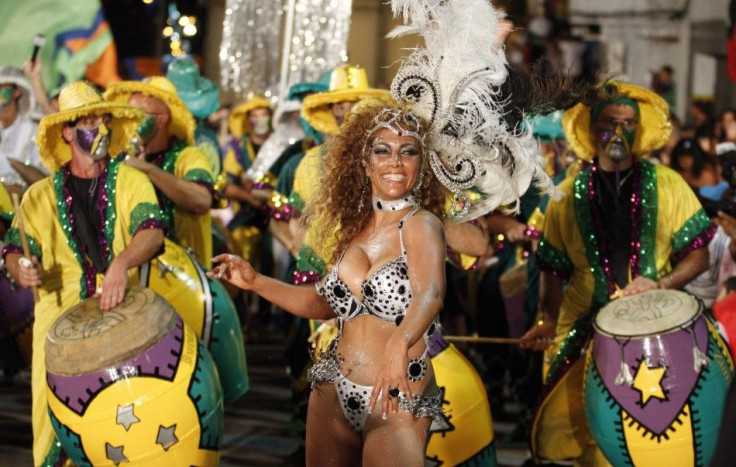Rio Carnival 2012: A Preview of Things to Come

Friday, Feb. 17 marks the Opening Ceremony of the 2012 Rio Carnival. The annual event, held in Rio de Janeiro, Brazil, is known to draw flocks of visitors from all over the globe. With renovations of public venues like event centers and the city's syndicate of hotels, bars and restaurants, the government hopes that these photo-friendly dates will provide an economic boost for the Brazilian city.
This year's Carnival is a significant one for Brazil. It's been dubbed Rio's Coming of Age - a term referencing the city's yet to be proven ability to host multiple major events. Brazil will take on the 2014 World Cup and 2016 Olympic Games and onlookers are keeping a close eye to see whether the country is ready to handle two of the biggest sporting events in the world.
Large perceptions of the festivities that take place during Rio Carnival surround its popular samba dance revolution. Other than being a magnificent showing of artistic and physical talent, the dance revolution acts as a platform for many aspiring women who are looking to make a career out of being a public figure. Over the years, the status of a great samba dancer has risen to the point where it can be compared to that of a male sports figure.
Some samba dancers and directors are getting paid now for their positions, Andre Skowronski, director of special projects for the União da Ilha Samba School, told The Wall Street Journal. The dancers move around samba schools like professional football players. According to Skowronski, a top artistic director can demand up to $14,500 per month.
There's big money involved in making up these dance parades, as well as big money to be made. The city relies heavily on attractive showings, like the parade, to draw people from all around the world - so much so that a portion of the funding for each of the special group samba schools comes from government grants and subsidies.
The Brazilian press reported that each of the special-group samba schools was given one million reals ($582,000) by the Rio city council this year and a further 400,000 reals ($233,000) from the state government to ensure the best showing possible. The money is used to fund the creation of costumes and floats, as well as pay the salaries of the dancers involved.
Aside from the samba school financing, the city has invested large amounts, this year specifically, into the Sambadrome - Rio's official samba stadium. The $20 million project expanded and modernized the stadium in preparation for various Olympic events.
If this year is anything like last year, the city of Rio can look forward to bringing in approximately $873 million in revenue. According to Rio de Janeiro's tourism bureau, Riotur, 96% of the city's hotels were fully booked for 2011's Rio Carnival. The survey taken by Riotur also showed that because the heightened excitement for this year's event, hotel prices have risen on average 17.6% since last year.
The whole SindRio sector -- the facilities and services - have been upgraded since last year, Darcílio Junqueira, director of SindRio, told The Wall Street Journal. SindRio is Rio de Janeiro's well-known group of hotels, restaurants and bars. The trio of mainstays acts as an epicenter for tourists who come to take part in what is widely considered to be Rio's finest hour.
In hopes that Rio Carnival 2012 will live up to its reputation, the government is rapidly preparing for the estimated five million people that will take part in celebrations across the city. A successful job will answer the question that many people have been asking all along - can they handle the volume?
According to Carlos Roberto Osório, the municipal secretary for conservation and public services, the 2016 Olympic Games will attract nine million spectators.
Osório said that while the Olympics will have only 303 events, last year's Rio Carnival had 424. And while the Olympic events will be restricted to 47 venues, last year's Carnival had more than 100 locations where street parties took place.
Rio de Janeiro has much to prove before it opens its doors to the world and all eyes will be on Carnival this weekend for signs of what's to come.
© Copyright IBTimes 2024. All rights reserved.












